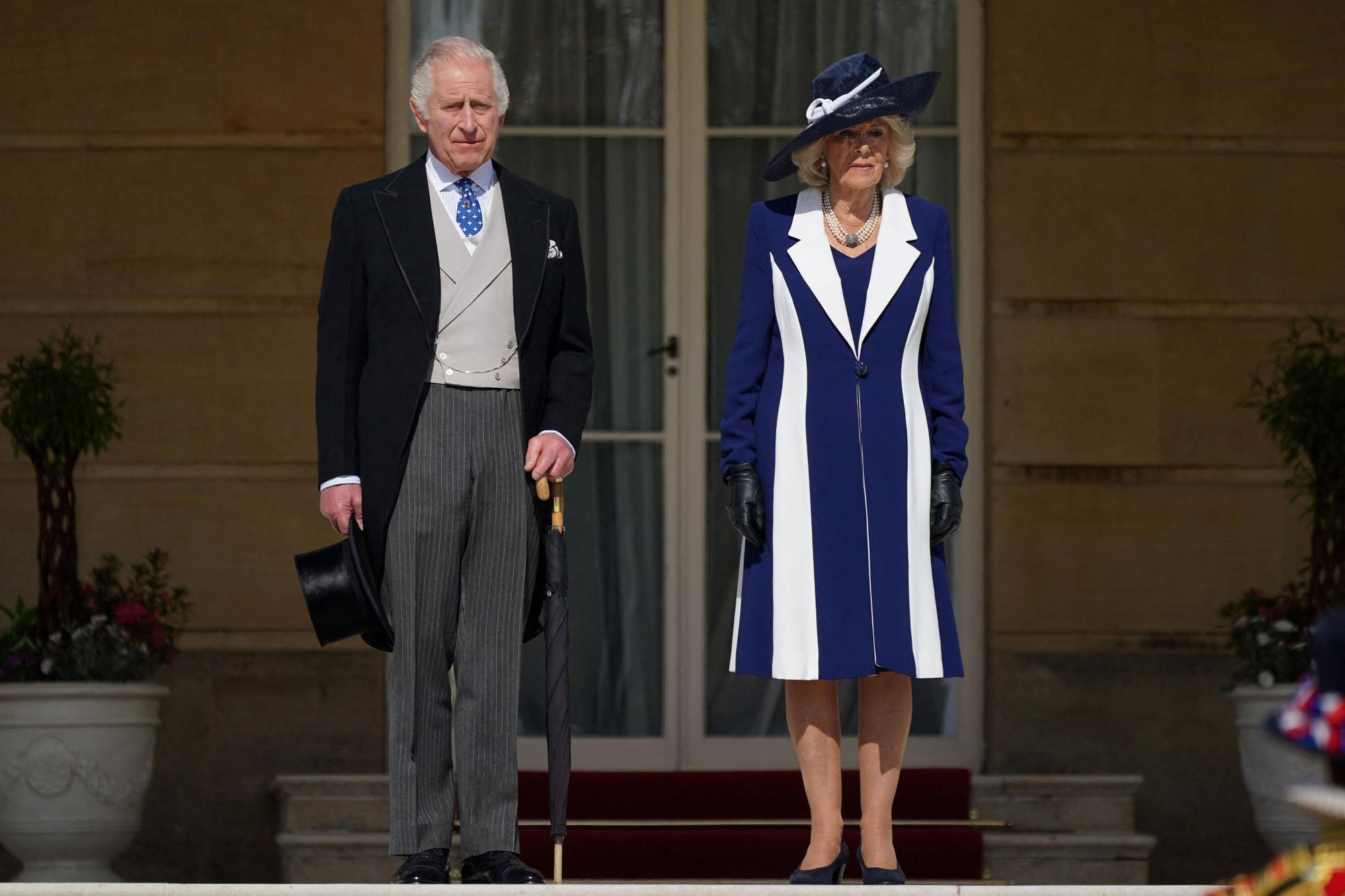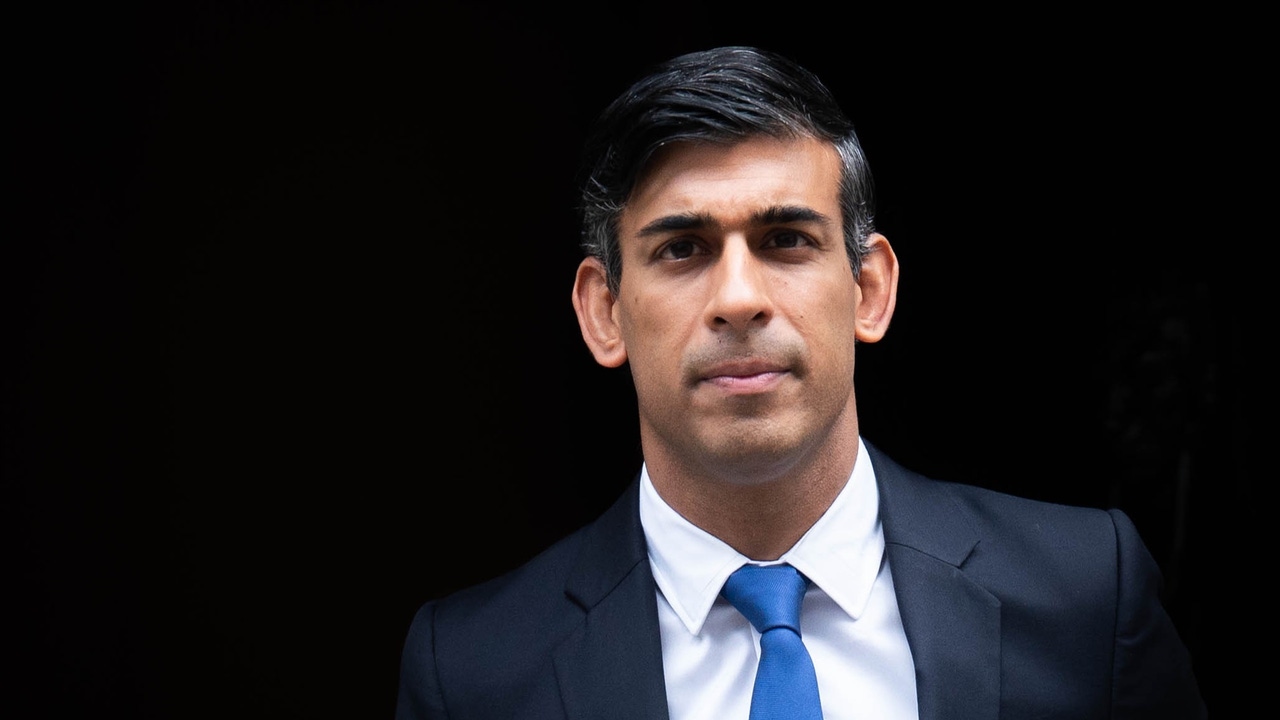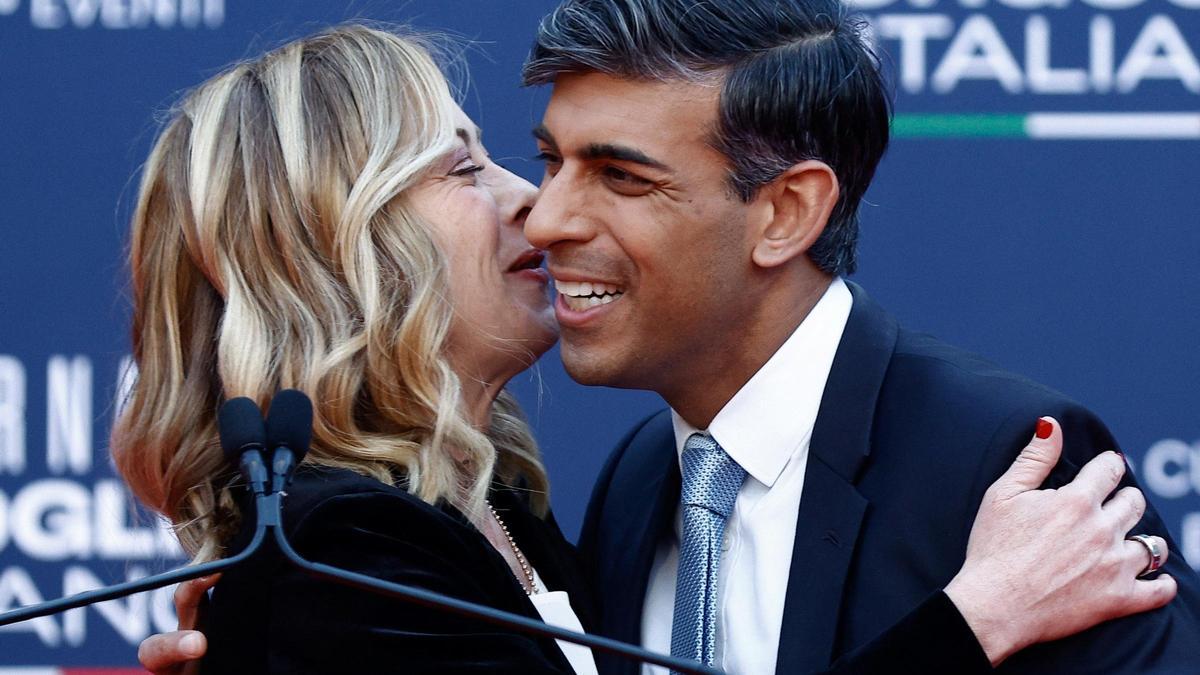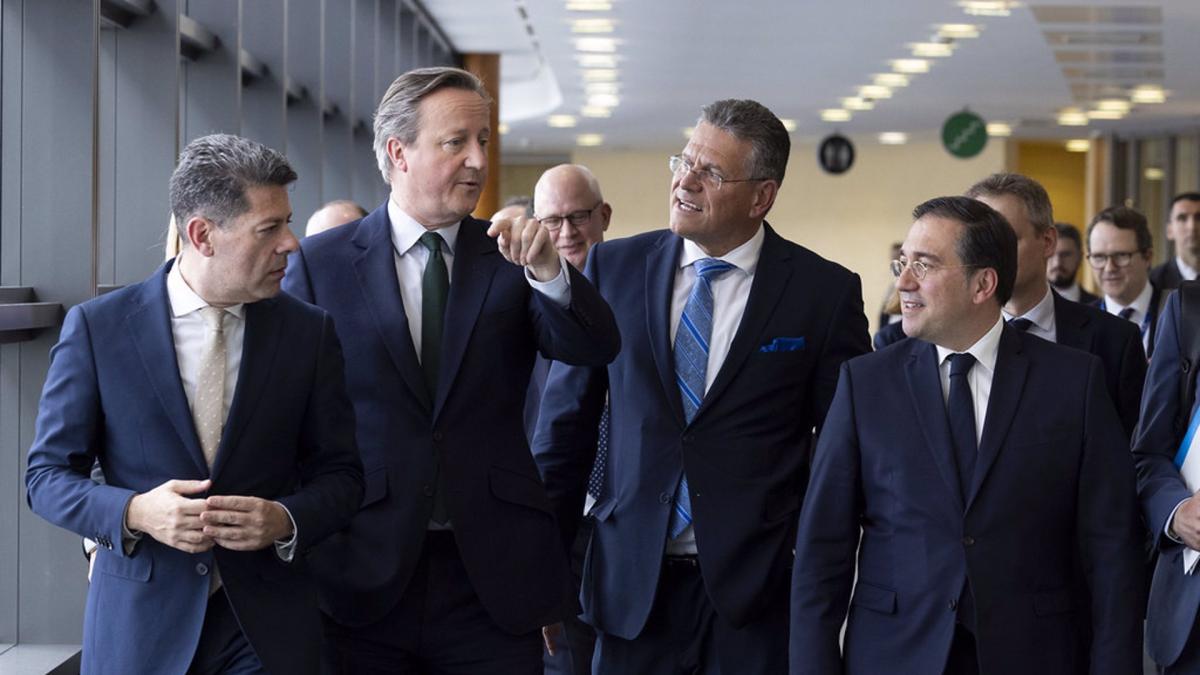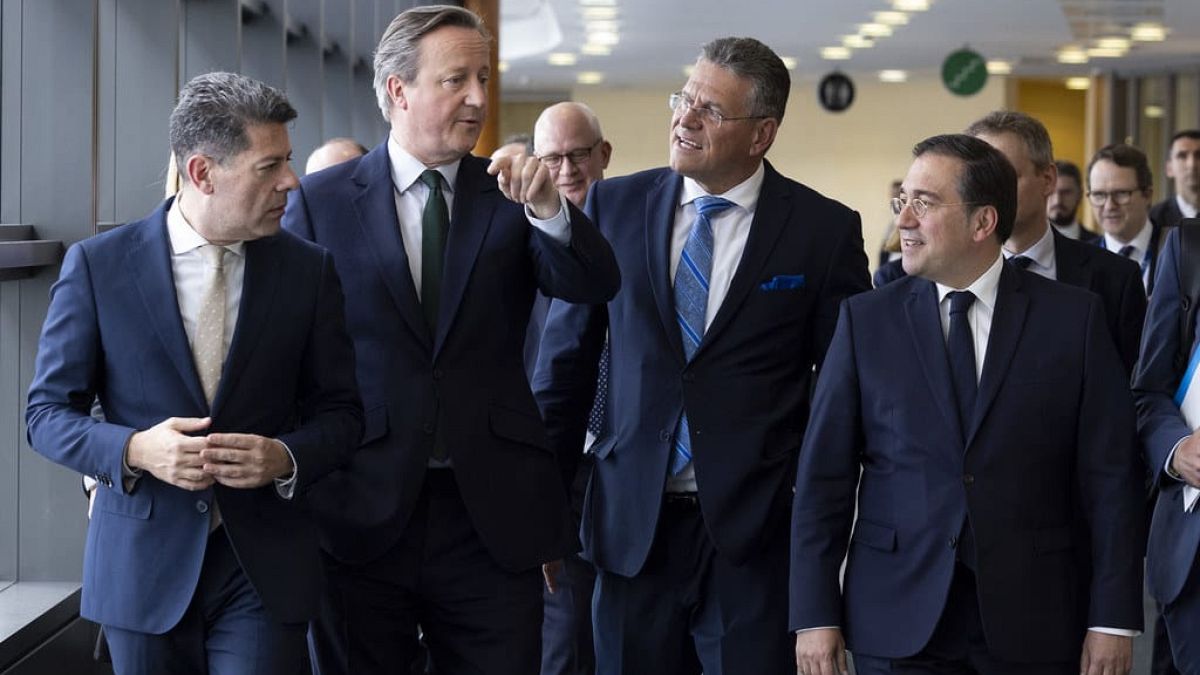President Daniel Ortega begins his fifth term in Nicaragua on January 10, his fourth in a row and second with his wife, Rosario Murillo, as vice president, backed by China, Russia, Venezuela and Cuba, and isolated from the United States. .) and the European Union (EU), which yesterday imposed sanctions on their two children, government officials and their state agencies.
Ortega, 76, has ruled without check in Nicaragua since 2007 and this afternoon the presidential sash will be worn again as a result of an election without political competition, which has been rejected by the international community and Nicaragua’s opposition. As a result, the new government period, which was about to begin, was deemed “illegitimate”.
“Today begins a period of completely and clearly illegitimate and illegal, stemming from an electoral process that does not meet one of the essential requirements of legitimacy and, on the other hand, is rejected by 80% of the population that does. not participating, as well as the international community – 57 countries in total – which has underscored the undemocratic and illegitimate nature of this process and its results”, denounced the Blue and White National Union (UNAB) in a press release.
Despite the will of the Nicaraguans, the president of the National Assembly, Sandinista Gustavo Porras, will take legal appointments from Ortega and Murillo in a ceremony to be held in the afternoon at the Plaza de la Revolución, in Managua. , a day after the new National Assembly was founded, in which the ruling party holds 75 of the 91 seats.
Diaz-Canel in Nicaragua
Several government delegates confirmed their participation in the inauguration ceremony of Ortega and Murillo, but Cuba’s president, Miguel Díaz-Canel, was the first to arrive at Managua’s Augusto C. Sandino airport and lauded the victory of the Sandinista leader.
Ortega “is a victory not only for Nicaragua, it is a victory that also holds enormous significance for leftist forces, and for the progressive governments of Latin America and the Caribbean, it is a victory that also demonstrates anti-imperialist conviction. from the people. Nicaragua”, said the Cuban president at the airport.
Díaz-Canel was received by the director of the Nicaraguan Institute of Social Security (INSS), Roberto López, who was sanctioned by the United States for “human rights violations, electoral fraud, and corruption.”
Simultaneously, the European Union approved new sanctions on Monday against Camila Ortega Murillo and Laureno Ortega Murillo, both sons of the Nicaraguan leader, and against five others close to the regime, as well as against three entities in the country. The US also announced new sanctions on Monday against six charges by the Nicaraguan government.
Meanwhile, the British and Canadian governments warned that they could take new action against President Ortega’s “oppressive regime” and hailed the new sanctions announced by the European Union and the United States as a form of pressure on Nicaraguan authorities to “restore democracy, and respect human rights.” “.
Canada’s Minister of Foreign Affairs, Mélanie Joly, stated in a statement that both the November 7 presidential election and the presidential inauguration being held today lacked “democratic legitimacy.”
“This growing authoritarianism must end. The rule of law and the rights of the Nicaraguan people must be respected, and free and fair elections must be restored,” said Vicky Ford, Minister for Africa, Latin America and the Caribbean of the UK Foreign Office.
The UK “supports the sanctions package announced today by the United States and the European Union. We will continue to raise our concerns with the Government, calling on Nicaragua to comply with its international obligations and respect the human rights of its citizens and end oppression in the country,” Ford added.
Mexico will send representatives at the last minute
Hours before Ortega and Murillo’s inauguration ceremony, Mexico’s president, Andrés López Obrador, considered that it would be “reckless” for his government not to send representatives to Nicaragua and send representatives at the last minute.
“That hasn’t been decided yet. When is the inauguration? Today? He does not know. We’ll see if there’s time, because we have good relations with everyone, and we don’t want to be careless,” said the President during a press conference this morning from the State Palace.
He repeated that “yes (it would be unwise not to send representatives) because we cannot override the policies of people’s self-determination and independence,” he said.
The Ministry of Foreign Relations (SER) announced on Sunday that Martín Borrego, South America director, would attend Nicaragua’s presidential inauguration. However, hours after the inauguration ceremony, SRE announced the cancellation of Mexico’s participation, after Human Rights Watch’s regional director, José Miguel Vivanco, condemned the decision.
“No official from the Mexican Ministry of Foreign Affairs will attend the protests in Nicaragua. We have a meeting of ambassadors and consuls”, it was indicated in the chat.
However, this Monday, at his conference, López Obrador reported that Ramiro Ayala, head of the Ministry of Foreign Affairs at the Mexican embassy in Nicaragua, will represent the country at the coronation ceremony.
“At the same time I will say, he is a business manager, because we do not have an ambassador, but we will seek approval from the Government of Nicaragua because he will be an ambassador in Nicaragua (… ) Guillermo Zamora, by the way, a journalist”, advertisement.
Expectations of the regime
Murillo announced last week that the inauguration of the new Ortega will be witnessed by representatives from Argentina, Belize, Belarus, Bolivia, Cambodia, China, Cuba, Egypt, Honduras, India, Iran, Laos, Malaysia, Mexico, Palestine, Sahrawi Arab Democratic Republic, Turkey , Venezuela, Vietnam and Yemen.
China, Ortega’s new ally, which cut ties with Taiwan after nearly 15 consecutive years in power, will be represented by Cao Jianming, vice president of the Standing Committee of the National People’s Congress (ANP, Chinese Legislature), as Special President Xi Jinping’s envoy.
The Iranian delegation will be led by the Vice President for Economic Affairs of the Islamic Republic of Iran, Moshen Rezai, while Russia has yet to announce who will represent it.
Meanwhile, the Government of Alberto Fernández clarified that it would not send Argentine representatives to the inauguration of Ortega and Murillo and argued that there was confusion in some of the statements given by their ambassador, Daniel Capitanich, to the newspaper La Prensa, in which he claimed otherwise.
Protest in exile
Various Nicaraguan opposition organizations have protested in several countries under the slogan “Nicaragua has no government or legitimate power of the State,” in opposition to Ortega and Murillo’s inauguration.
This week there were demonstrations against the regime in Germany, the United States and Costa Rica.
Meanwhile, a group of nearly 70 Nicaraguan organizations from home and abroad, and people living in different parts of the world, voted for the National Council for Democratic Transition to confront the Ortega-Murillo regime. These organizations also signed a union agreement.
Meanwhile, the General Assembly of the Organization of American States (OAS) last November approved a resolution declaring that the election, in which Ortega and Murillo were re-elected, lacked “democratic legitimacy” and was neither free nor fair. , or transparent.
The Sandinista government accused the hemisphere agency of “interference” and denounced the OAS Charter, its founding document signed in 1948, a process that would have taken two years for its withdrawal from the entity to take effect.
With information from EFE.

“Problem solver. Proud twitter specialist. Travel aficionado. Introvert. Coffee trailblazer. Professional zombie ninja. Extreme gamer.”


